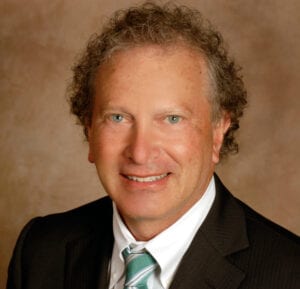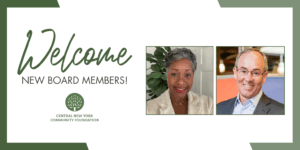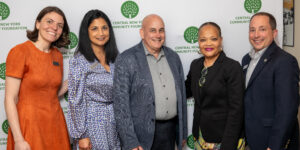A U.S. Trust study found that people want their financial advisors to ask them about charitable giving. In fact, a third of clients surveyed think the topic of charitable giving should be raised in the very first meeting. Yet fewer than half feel their advisors are good at discussing personal or charitable goals with them.
Wondering how to start a conversation about charitable giving with your clients? Or looking to refresh your approach? As part of an ongoing series, we’re asking some of Central New York’s most experienced professional advisors how they “pop the question” about charitable giving to their clients.
 Hear from David Holstein, Esq., Member & Board of Managers, Bousquet Holstein, PLLC, on how he “pops the question.”
Hear from David Holstein, Esq., Member & Board of Managers, Bousquet Holstein, PLLC, on how he “pops the question.”
Why do you think it is important to bring up the topic of charitable giving?
I am an estate planning attorney, and the topic of charitable giving is one that should come up during the process of discussing a client’s testamentary wishes. While some clients are very focused on leaving part of their estates to charity, others come to the table thinking primarily about their spouses, children and grandchildren, even if they have been charitable throughout their lifetimes. Reminding them to consider leaving a gift to the institutions and activities they have supported all of their lives helps them to re-focus at a time when they just might not have been thinking about charitable giving.
In addition, clients may have outstanding charitable pledges which need to be taken into account in planning the cash flow of their estates.
Further, when a client is interested in making testamentary gifts to charity, picking the right assets to give, such as retirement assets, can be a winning strategy. It preserves assets for the family, the receipt of which is not income-taxable, and gives to charities assets the income of which they are exempt from reporting.
How do you learn about your client’s charitable interests?
In getting to know the client, you learn about the client’s interests – charitable and non-charitable. This is done through conversation, questionnaires, and general knowledge of the client’s activities, board memberships and other affiliations.
At what point(s) in your process do you bring up/revisit the topic of charitable giving?
The topic most often comes up in the discussion regarding the dispositive provisions of a will or trust. For some clients, especially those who had or will be having a large taxable transaction during the year, such as a large bonus, sale of a business, or the receipt of retirement benefits, the topic comes up in the context of income tax planning through the use of charitable giving. We have clients who have established donor advised funds, established and funded charitable remainder trusts, established private foundations, purchased charitable gift annuities, and made outright gifts to charity, all to help them with their income tax issues while benefiting their favorite charities at the same time.
What questions or ideas about charitable giving do you find resonate the most with your clients?
It is important to find out what your clients are passionate about. Sometimes it takes prodding, but in most cases you need to be a good listener. Some clients have already identified the programs and institutions that they would like to support. With others, listening to their concerns will help in identifying the areas of interest they would like to support. From there we help them research and discover existing organizations and activities through which the clients can express and achieve their charitable goals.
How has your approach changed over the years?
I am more cognizant of the need to consider charitable giving in every estate plan, whether for economically established clients whose children are well off and who want to make a difference, as well as for the client with much less to give but with a passion for the needs of the charities he or she supports. I also have discussed with clients the importance of making gifts that are impactful. That often means making gifts to fewer organizations but larger and more focused gifts to a smaller group of organizations, so that real change can be accomplished through the gifts that are made.
Is there anything else you want to add about helping your clients with their charitable planning?
We have a great community resource in the Central NY Community Foundation. I often refer clients to the development officers at the Community Foundation, as they are great sounding boards and advisors and are exceptionally knowledgeable about the organizations in the community and the nation through which different types of charitable activities are conducted. They help our clients identify, focus and implement their charitable intentions, and are great partners with us in advising our clients so that together we can help them achieve their charitable goals.









